Dear Friends:
Friday, April 19, 2019/Erev Pesach 5779 marked the seven-year anniversary since we opened escrow to purchase the Paul Ecke Ranch, now Leichtag Commons.
According to Jewish tradition, we have now completed an entire cycle of the shmita. Shmita is the sabbatical cycle, the biblical concept of six years of production followed by a year of regeneration for the land and the people. Seven is Judaism’s most sacred number, symbolizing completeness and wholeness.
The first Chief Rabbi of Israel, Rav Avraham Yitzchak, Kook finds in the period of seven years of shmita a metaphor for the completeness of life’s spiritual qualities. Too soon, the fruit is not ripened. Too late, it is overripe and rotted. Without the fullness of “seven” there is an emptiness, an unripeness, still awaiting its time.
A cycle of seven is also seen as a mechanism to advance equality, justice and freedom from poverty and slavery. How much more so that our Leichtag Commons cycle of seven coincided with the eve of Passover, the holiday on our calendar which celebrates the very same and exhorts us to stay steadfast in our pursuit of freedom.
We offer to you Seven Short Reflections to mark this ending of our first cycle and the beginning of our next one:
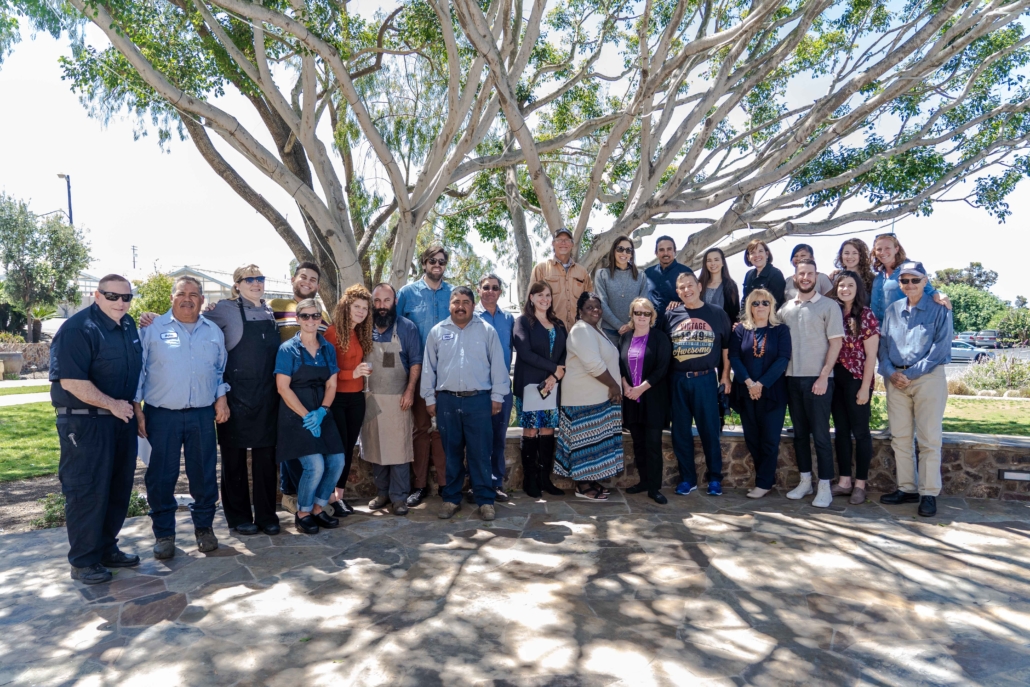
1. The team we have assembled honors the Leichtag Legacy each and every day. We are awed by our staff! Just in the last month, they have radically welcomed more than 1,000 unique individuals to the Commons at almost 50 different events. Last week, we held a Commons-wide Pesach Seder, the first-ever seder for several people and the hundredth for others. We expressed our gratitude, our hopes for the year ahead, our personal slaveries and our freedoms. Each of our staff brings such heart, dedication and passion to their work fueled by a deep commitment to carrying out the remarkable legacy that Lee, Toni and Joli, zichronam l’vracha, bequeathed to this community.
2. We must keep a keen eye on our past while looking toward our future boldly and with a renewed sense of urgency. Friday marked the 76th anniversary of the Warsaw Ghetto Uprising which was timed also for Erev Pesach. This year, for the first time in 76 years, a Pesach Seder again took place at the Warsaw Ghetto. There’s a correlation here that seems appropriate and meaningful to our experience. We started this work together with a desire to honor the generations that came before us as memory became history. “In every generation, we each are obligated to see ourselves as though we personally went out from Egypt.” (Passover Haggadah)
At Leichtag Commons, we have tried to create living Jewish experiences where traditions and laws that were perhaps viewed as just ancient texts can come to life and action. Jewish wisdom guides us in grappling with contemporary issues whether they be in farming (Coastal Roots Farm, Jewish Community Farming Field Building Initiative); expressions of identity and culture (the Hive, Jews of Color Field Building Initiative, arts and discourse programming); community building (leading community social justice actions, interfaith programming, refugee initiatives); education (Murray Galinson San Diego-Israel Initiative, San Marcos Promise); and much more.
3. The opportunities at the Commons only get more interesting. Since taking ownership of the property at the end of 2012, we have increased our revenue by about seven times (again the number 7!) while implementing substantial deferred maintenance and property improvement. A few weeks ago, the American Jewish Aging Society brought to the Commons their entire conference of 200+ leaders in the field of caring and planning for the elderly. In the Commons, they saw a model for living, learning and trailblazing. Last week, we celebrated with the Salk Institute their $35 million grant from The Audacious Project for Salk’s Harnessing Plants Initiative, which will advance innovative, groundbreaking global climate change solutions. We are very pleased to welcome Salk to the Commons as our newest tenant using greenhouse space that may be funded in part through this program. Seven years ago, we could have never imagined that the Commons could become a hub for research at the nexus of agriculture and global climate change.
4. Jerusalem has inspired, deepened and animated our work far more than we could have ever anticipated. Yehuda Amichai, the celebrated Israeli poet, reflects on wanting to live in a “Jerusalem of in-between” where the generations-old visions of Jerusalem as the foremost city of peace, equity and creative spirit (“Jerusalem of high”) come together with the more earthly realities of Jerusalem as a city where diversity and intensity can bring out every kind of human response, gritty and messy (“Jerusalem of low”). We are proud to work squarely in that “Jerusalem of in-between”.
The Jerusalem Model has brought together hundreds of civil society leaders from every sector of the city, one of the most diverse platforms for bottom-up social change—and potentially one of the most effective of such platforms. Together they navigate diverse perspectives and backgrounds, animate a shared Jerusalemite identity and strengthen their professional leadership skills.
5. The spirit of risk and experimentation in our first cycle continues, but we also begin our second cycle with a much-deepened knowledge and attentiveness of how to focus and stay the course. During our first cycle at the Commons, we were doing a lot of catching up and learning. Deferred maintenance; pop-up programming; building a consumer base for outreach and program participation; starting up the Jewish Food Justice Fellowship; Hive and Coastal Roots Farm; recruiting new tenants; revamping and building greenhouses and other structures; hosting events and convenings and much more. Much of these early years, we felt like the child in the Passover story who, in the words of our Sages, does not even know how to ask. While we don’t have the answers by any means, we enter the next seven years with a better framework for the right questions. We intend to kick off a master planning process in the near future. We understand possibilities for use much better. The partnerships with the E3 Collaborative organizations have intensified opportunities for joint and shared space use of all kinds.
6. A strong sense of service and humility fuels our work. While we reflect on and celebrate so much accomplishment, we also know that the key ingredient to anything that’s been achieved has been a deep recognition that others made these opportunities possible and that nothing could be accomplished without so many partners, friends, supporters and community members. Shmita reminds us that the land and our resources do not really belong to us. We balance our need for regeneration with tools that create better equity and justice in our community, society and the world.
7. We close with one of our favorite quotes from Deuteronomy Rabbah: “A community is too heavy to carry alone.” We are so grateful to YOU: our partners, our team, our leaders, our co-creators, our advisors, our cheerleaders, our best critics, our wisest friends, our beloved community. Thank you for all you do for the Foundation, the Commons and the community. How blessed and privileged are we that we get to do this sacred work together!
Here’s to the next seven years! L’chaim!






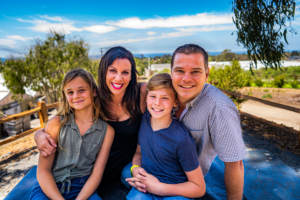
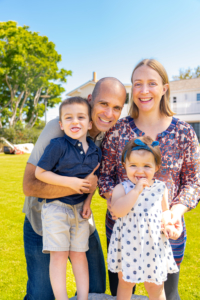 Stacie and Jeff Cook understand commitment. They live it.
Stacie and Jeff Cook understand commitment. They live it.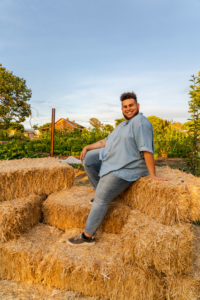 Black, Jewish and Queer. These three identities weave the fabric of who I am, but it took a long time to believe that they could exist together.
Black, Jewish and Queer. These three identities weave the fabric of who I am, but it took a long time to believe that they could exist together.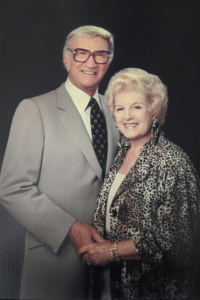 Lee and Toni Leichtag established the Leichtag Foundation in 1991 following the sale of their business. Lee and Toni were lifelong entrepreneurs with a passion for innovation and for supporting talent. They believed that only with big risk comes big reward. Both born to families in poverty, Toni to a single mother, they strongly believed in helping those most in need and most vulnerable in our community. While they supported many causes, their strongest support was for young children and the elderly, two demographics who particularly lack voice in our society.
Lee and Toni Leichtag established the Leichtag Foundation in 1991 following the sale of their business. Lee and Toni were lifelong entrepreneurs with a passion for innovation and for supporting talent. They believed that only with big risk comes big reward. Both born to families in poverty, Toni to a single mother, they strongly believed in helping those most in need and most vulnerable in our community. While they supported many causes, their strongest support was for young children and the elderly, two demographics who particularly lack voice in our society.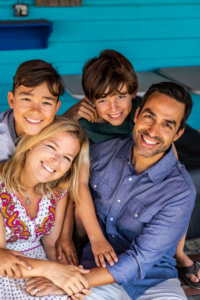 Lifelong Baltimoreans, Rabbi George and Alison Wielechowski and their sons, 11-year-old Lennon and 9-year-old Gideon, are more than pursuing the good life in Southern California. Having moved to San Diego more than three years ago, they are fulfilling a lifelong dream.
Lifelong Baltimoreans, Rabbi George and Alison Wielechowski and their sons, 11-year-old Lennon and 9-year-old Gideon, are more than pursuing the good life in Southern California. Having moved to San Diego more than three years ago, they are fulfilling a lifelong dream.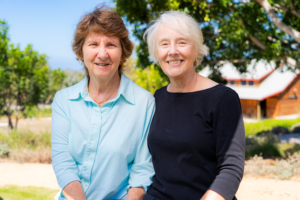
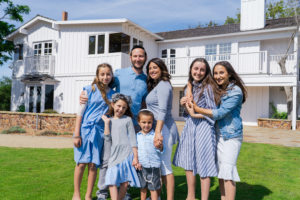
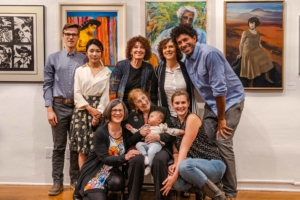
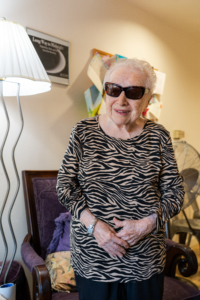
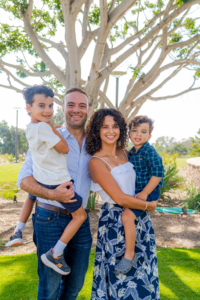
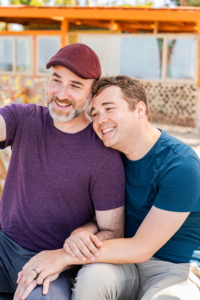
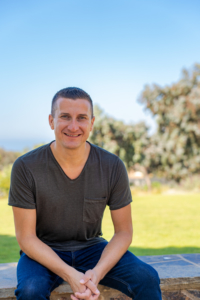 You would think that as the executive director of San Diego LGBT Pride, Fernando Zweifach López Jr., who uses the pronoun they, has done all the coming out they possibly can. A queer, non-binary individual who has worked for many years on civil rights issues, López also speaks openly and often about their father’s family, Mexican-American migrant workers who tilled the fields of rural California.
You would think that as the executive director of San Diego LGBT Pride, Fernando Zweifach López Jr., who uses the pronoun they, has done all the coming out they possibly can. A queer, non-binary individual who has worked for many years on civil rights issues, López also speaks openly and often about their father’s family, Mexican-American migrant workers who tilled the fields of rural California.